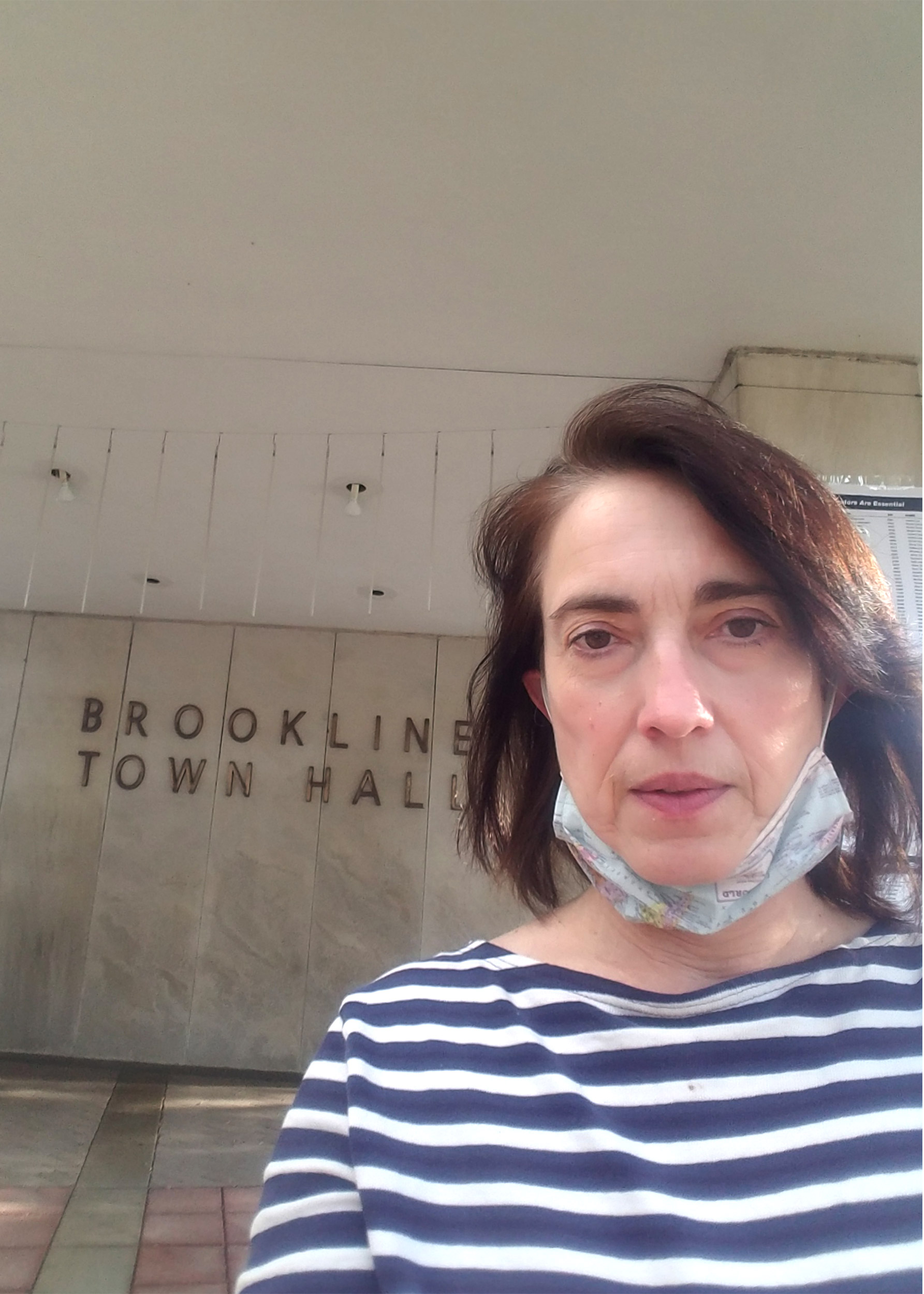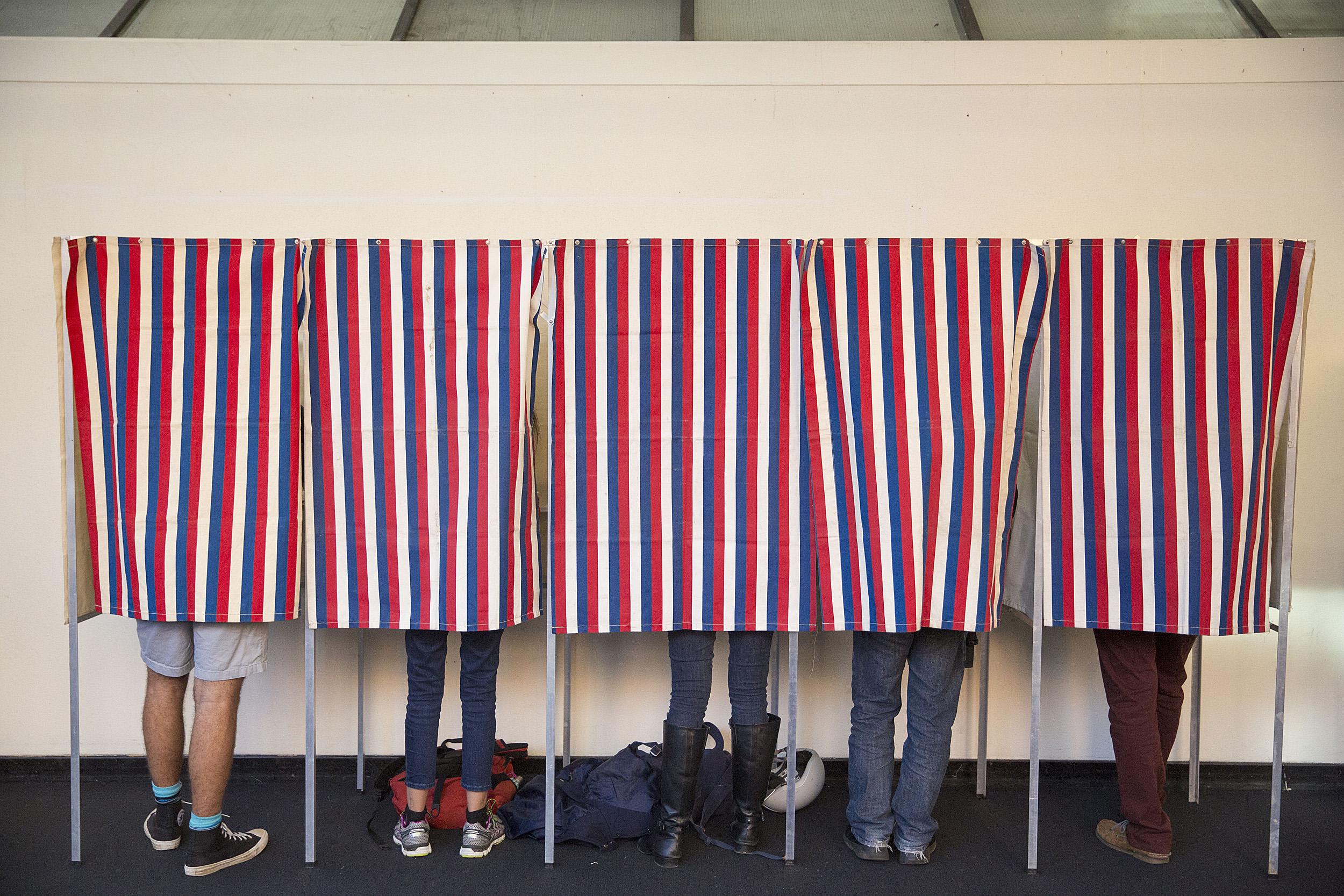
Kris Snibbe/Harvard file photo
Pulled to the polls
Harvard students, staff step up to work elections
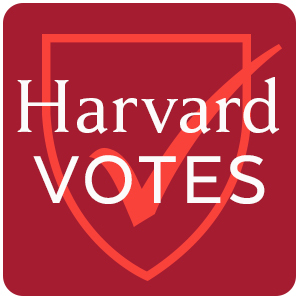
In an election year like no other, many in the Harvard community have stepped up to register voters and campaign for candidates or causes. And a number of students, faculty, and staff have signed up to work at election offices and polling stations on Nov. 3. The Harvard Votes Challenge has recruited more than 150 affiliates to work the polls as part of its partnership with the Safe Elections Network and Power to the Polls. The Gazette spoke to a handful of students and staff about why they decided to get involved.
Maddie Chai ’21
From: Norwell, Mass.
Because of the national poll worker shortage and because so many older poll workers are at risk for coronavirus, it makes sense for a healthier and younger person like me to step up. Beyond that, working at the polls is one of the many ways in which I can help preserve our democracy and ensure that every citizen is able to cast a ballot. Our vote is our proxy for power. There’s so much at stake in this election, and we have to do everything we can to show that young people are a reliable part of the electorate. Women and people of color had to fight relentlessly to gain equal suffrage, and to not vote would be a disservice to all of those activists and to those who were disenfranchised.
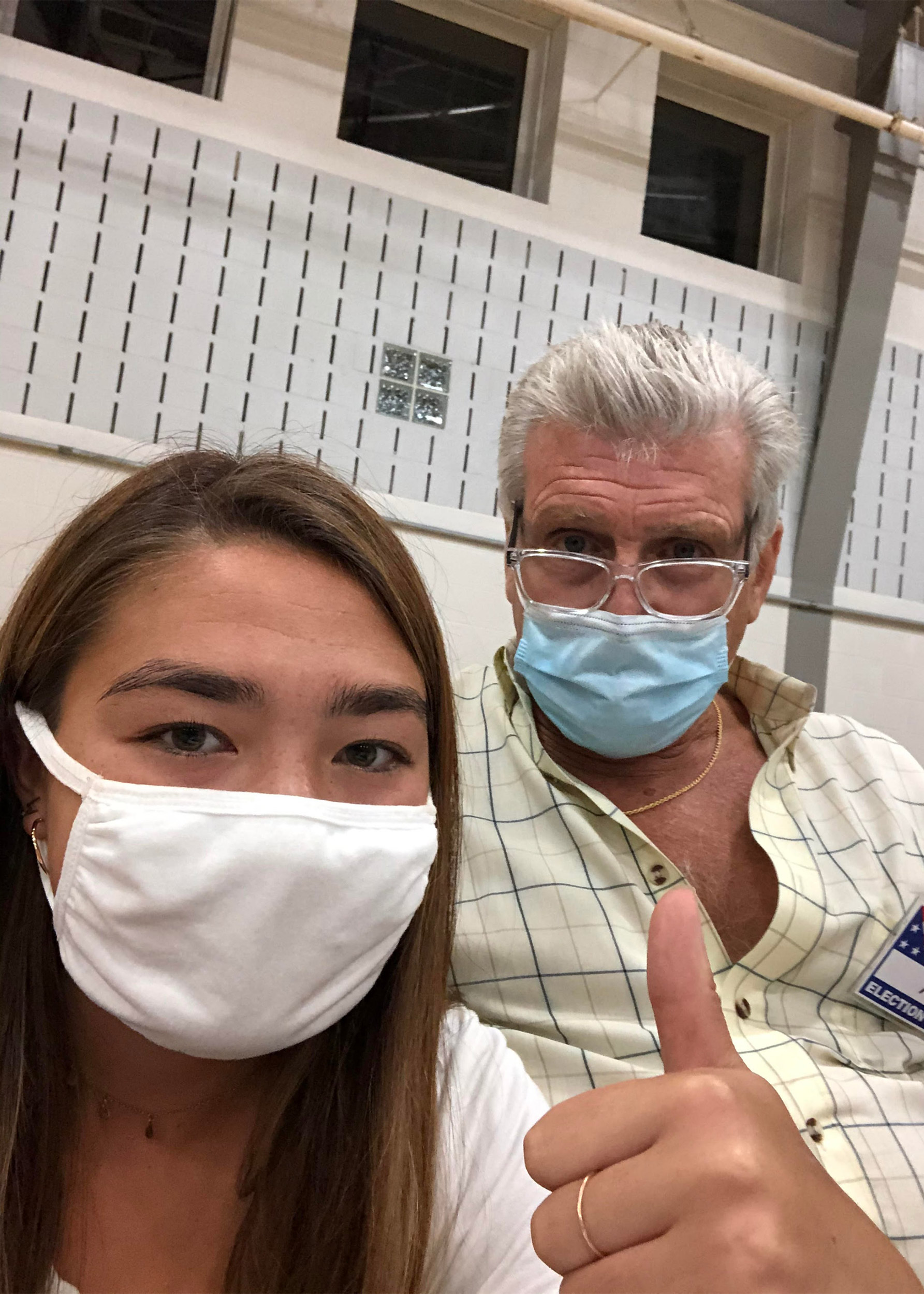
Alison Stevens
Ed.M. Candidate, Harvard Graduate School of Education
From: Lexington, Mass.
When you interact with people at the polls, you are getting individuals at their best. No matter what a person’s day was like before entering the polling station, they come in civic-minded and gracious, ready to exercise their civic duty. This makes the work extremely rewarding for poll workers and is one of the reasons why I enjoy working the elections so much. The only experience I’ve had as an election worker that’s been frustrating is the very small percentage of voters who select the “write-in candidate” line on the ballot and write the name of a celebrity or fictitious person. Disingenuous write-in votes create a significant amount of additional work for poll workers, who must hand count and individually record each write-in vote. Honest write-in votes, on the other hand, are always welcome and can often be important in local elections where few people are running.
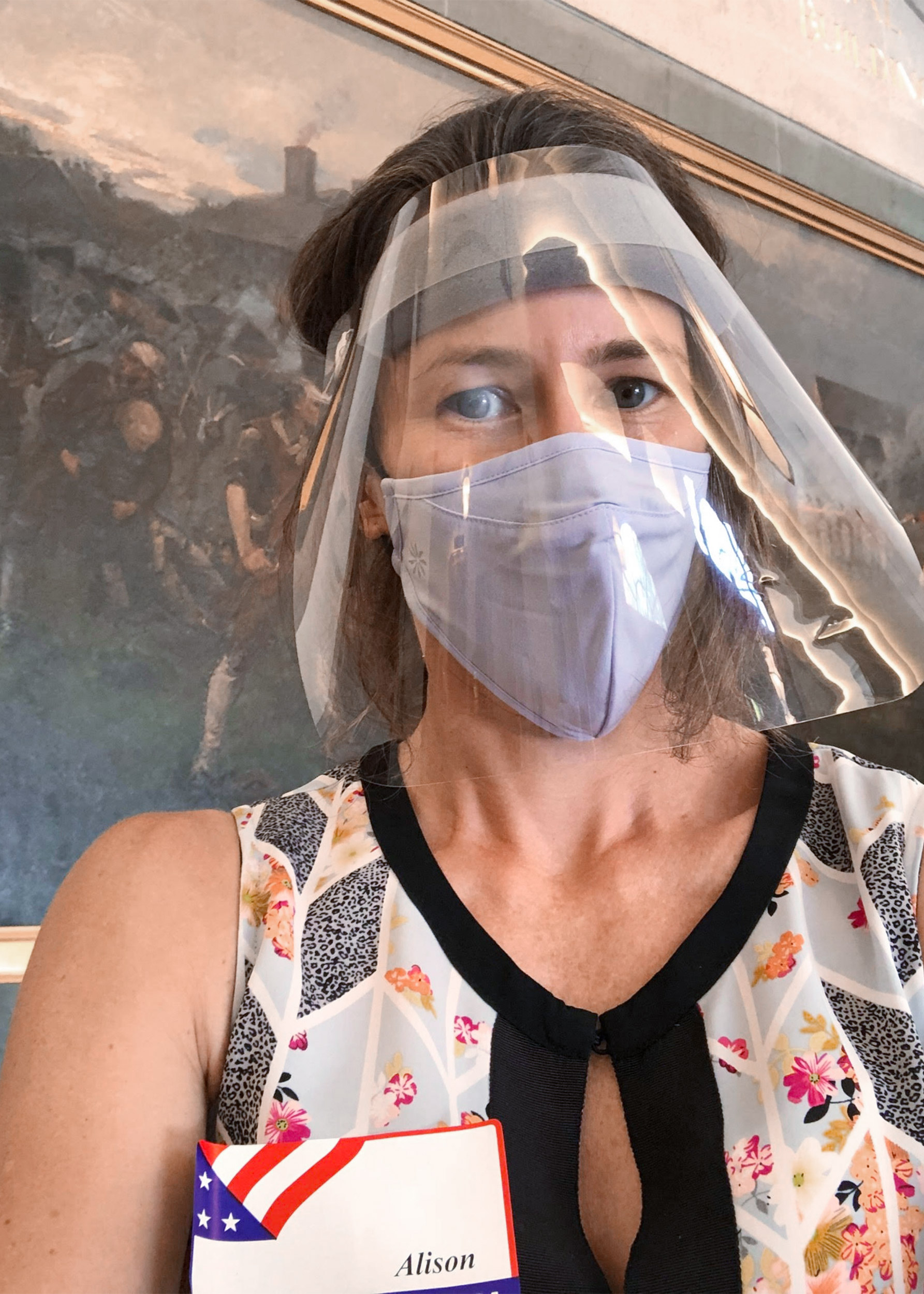
Kris Locke
Associate Director, Office for Sustainability
From: Quincy, Mass.
I want to make the voting process safe and accessible this year, in order to allow everyone who is eligible to vote. I was also inspired to sign up because of the power and impact that voting can have. Last spring, as we commemorated the 50th anniversary of Earth Day, we in the Office for Sustainability tried to brainstorm what the most meaningful way to acknowledge Earth Day would be. We realized that the most impactful action would be researching candidates, reading about their plans surrounding issues of climate change, and voting.
When I worked at the Massachusetts primary, people would come in with questions or concerns, and I worked to sort through the problem, resolving it in order to allow each individual to vote. The beauty of the experience was that every individual who walked into the election office, no matter what issues or concerns they had, was able to successfully vote. I loved being a crucial part of that process and felt that I could make the voting process not only safe and accessible, but also effective.
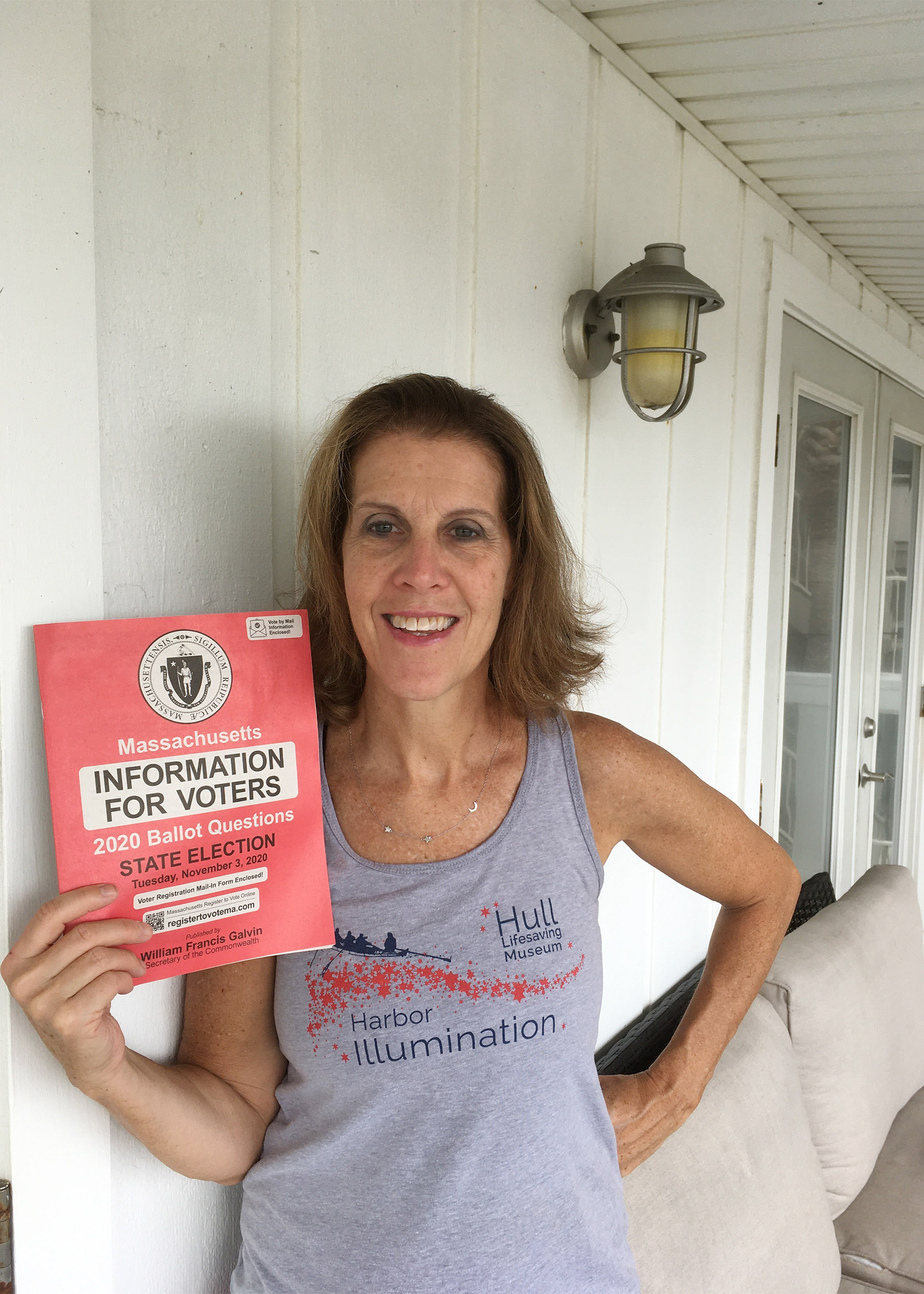
Madeline Ranalli ’23
From: Newton, Mass.
Voting is a form of participation I do not take lightly. As someone who does a lot of political advocacy, I see voting as one of the many tools that allow us to achieve important societal change. What a lot of people don’t realize is that a vote is one of the only mechanisms that holds elected officials accountable for their actions. Citizens must establish a clear relationship with the decision-makers, through a vote, in order to hold them accountable for the moments in which they may neglect causes that need more attention, or fail to listen to the concerns of their constituents.
While working at the polls for the Massachusetts primary election in my hometown, I was able to be a recognizable and friendly face to voters. I hope to play the same role on Nov. 3. In these elections in which many young people are voting for the first time, people are particularly passionate about candidates on the ballot or may need assistance due to confusion about absentee ballots and coronavirus protocols. It was so rewarding to support voters and help cast their ballots.
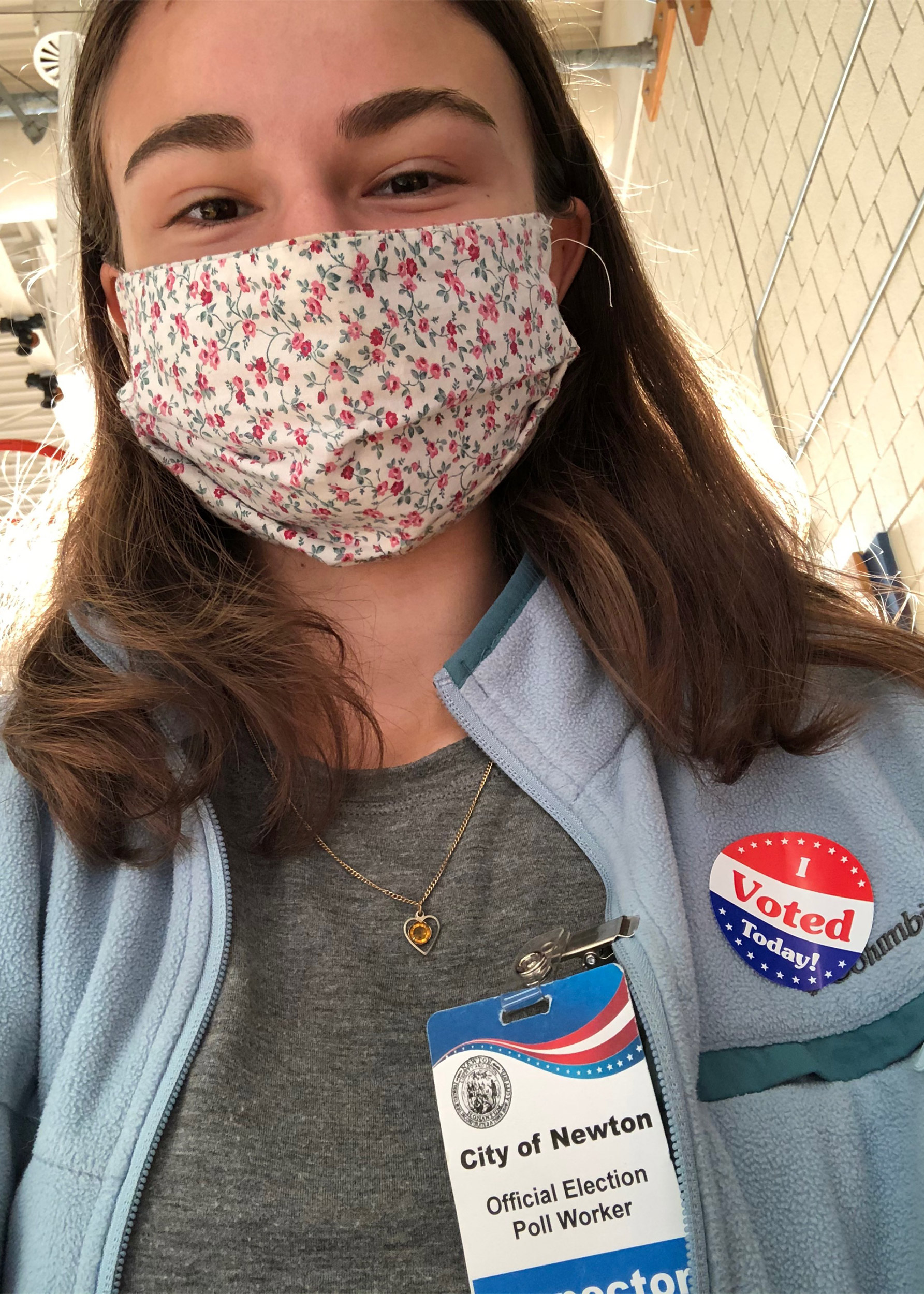
Miranda Daniloff Mancusi
Executive Director of the Division of Policy Translation and Leadership Development, Harvard T.H. Chan School of Public Health
From: Brookline, Mass.
I have always been a voter, but wanted to further “walk the walk.” With the difficulties of solving COVID-19 and racial injustice and climate change, everyone needs to dig deeper and contribute in whatever ways they can, whether those contributions are small, large, or something in between. Taking action is also a great way to tamp down the anxiety that many of us feel in 2020. As a mom, I have watched “Finding Nemo” with my kids, and I love the scene in which the character Dory is trapped in a fishing net and the fish all swim hard in one direction together to release her. Even though it is an animated movie, it is a great image for what voters have to do now. Voting is the only way to make change among those who represent us at all levels, to ensure that everyone has a say in the direction of their towns and nation, and to make sure we hold our elected officials accountable.
At the primary, it was so heartening to see different generations working the polls: a college student, a mom with young kids, another university administrator, as well as senior citizens. Many had really personal stories about why they were there. The mail-in ballot process seemed very smooth and well-incorporated in the tallying process, and it gave me confidence, at least in Massachusetts, that we will get that right.
